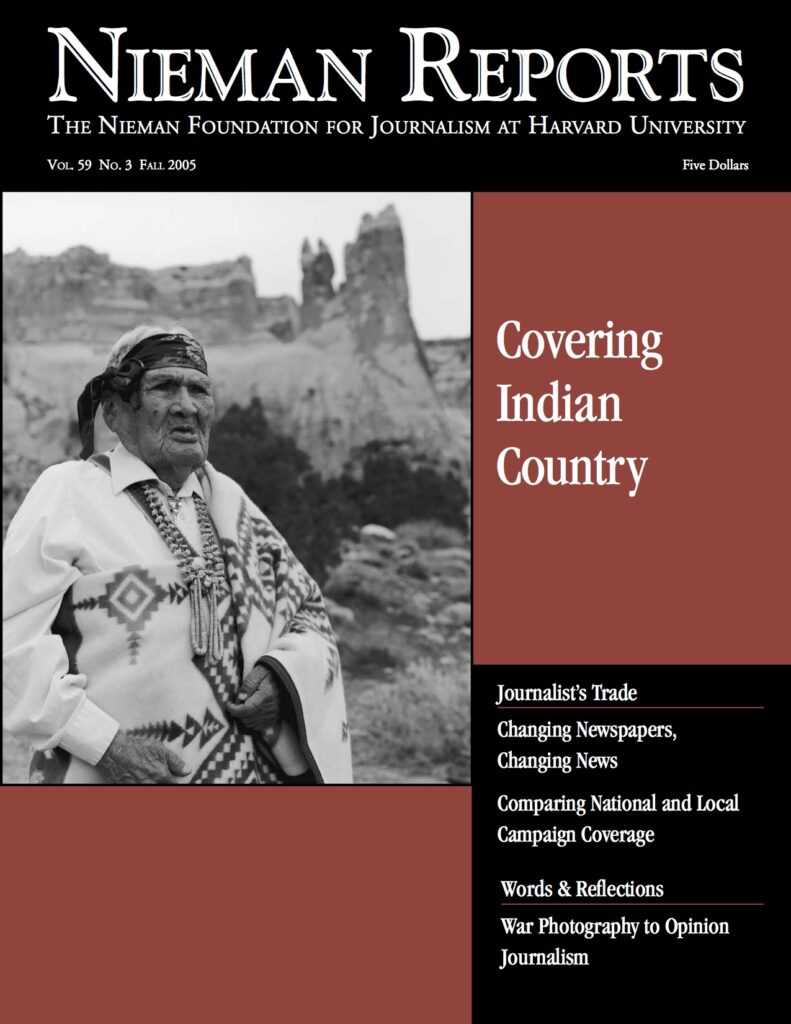RELATED ARTICLE
"The Silent Takeover of American Journalism"
- Gilbert CranbergIn 2002 the Ad Hoc Committee on the Press, made up of nine well-known journalists, presented newspaper company CEO’s and directors with suggestions about how they could put quality ahead of profits and, in doing so, have them look and behave like institutions focused on journalism. What follows is the message that was sent by the members of this committee:
The undersigned individuals believe that newspaper companies have special obligations to the communities they serve and to society at large. We assume that you share this conviction. Yet we feel that, too often, media companies look and behave the same as any other commercial enterprise.
In an effort to encourage a reexamination by newspaper companies of the degree to which they are sustaining their commitment to journalism, we call your attention to the enclosed recommendations drawn from a number of sources. We urge you to consider adopting these, or your own variant, in keeping with the unique, constitutionally protected, public-trust mission of your companies.
We do not write in an adversarial spirit. We take this approach without fanfare or publicity and do not wish to put any company or individual on the spot, although we may want to encourage public discussion of these issues somewhere down the road. We would appreciate hearing from you about any action you take or about thoughts you have on these issues.
Thank you for your attention and for your consideration of the suggestions attached.
Sincerely,
Hodding Carter
Jim Naughton
Bob Giles
Geneva Overholser
Max King
Gene Patterson
Bill Kovach
Gene Roberts
Dave Lawrence
These judgments should figure importantly in the compensation of local publishers, editors and key editorial employees. Newsroom bonuses should be rewarded exclusively for achieving journalism-related objectives. Stock options should not be part of the compensation package of editorial employees. Nor should stock options constitute all or part of directors’ fees.
"The Silent Takeover of American Journalism"
- Gilbert CranbergIn 2002 the Ad Hoc Committee on the Press, made up of nine well-known journalists, presented newspaper company CEO’s and directors with suggestions about how they could put quality ahead of profits and, in doing so, have them look and behave like institutions focused on journalism. What follows is the message that was sent by the members of this committee:
The undersigned individuals believe that newspaper companies have special obligations to the communities they serve and to society at large. We assume that you share this conviction. Yet we feel that, too often, media companies look and behave the same as any other commercial enterprise.
In an effort to encourage a reexamination by newspaper companies of the degree to which they are sustaining their commitment to journalism, we call your attention to the enclosed recommendations drawn from a number of sources. We urge you to consider adopting these, or your own variant, in keeping with the unique, constitutionally protected, public-trust mission of your companies.
We do not write in an adversarial spirit. We take this approach without fanfare or publicity and do not wish to put any company or individual on the spot, although we may want to encourage public discussion of these issues somewhere down the road. We would appreciate hearing from you about any action you take or about thoughts you have on these issues.
Thank you for your attention and for your consideration of the suggestions attached.
Sincerely,
Hodding Carter
Jim Naughton
Bob Giles
Geneva Overholser
Max King
Gene Patterson
Bill Kovach
Gene Roberts
Dave Lawrence
- Boards of directors of newspaper companies should have among their outside directors one or more members with experience on the editorial side of a news organization. Outside directors with editorial backgrounds should be represented on board compensation committees.
- The board should designate a director to have special responsibility to monitor the quality of the company’s editorial performance. The director so designated preferably should be a member of the compensation committee. In the alternative, a com- mittee on editorial quality should be established, said committee to work closely with the compensation committee.
- Incentive compensation for corporate management should be tied in significant part to achieving journalistic quality goals. Boards should establish criteria for judging quality, and these may be both objective (e.g. circulation, news hole) and subjective criteria, the latter preferably after consultation with experienced nonemployees as well as in-house journalists. Judgments concerning the extent to which the criteria are met should take into account the views of journalism professionals and knowledgeable readers in the relevant communities.
These judgments should figure importantly in the compensation of local publishers, editors and key editorial employees. Newsroom bonuses should be rewarded exclusively for achieving journalism-related objectives. Stock options should not be part of the compensation package of editorial employees. Nor should stock options constitute all or part of directors’ fees.



